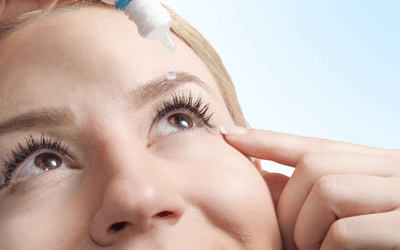
Do Not Ignore Dry Eye!
Winter months bring various diseases along with cold weather. One of our organs affected by the harsh conditions of the season is our eyes. In winter months, complaints about eye diseases increase due to dry, cold air and wind. Dry eye is one of the most common eye diseases in winter. Kudret Eye Istanbul Chief Physician Op. Dr Nail Sönmez gave information about dry eye and made suggestions to protect our sensitive organ, our eyes.
The Power of Tears!
Kudret Eye Istanbul Chief Physician Op. Dr. Nail Sönmez underlined the importance of tears for eye health and gave information about the symptoms of dry eye: “Our eyes do not secrete tears only when we cry or reflexively, such as when a foreign body enters from outside. A healthy eye produces a regular and constant level of tears. This tear release keeps the eye moist and allows the eyelids to move freely. The liquid we call tears prevents irritation of the cornea layer, which is the front part of the eye. Tears are also the security guards of our eyes. It helps to expel dust and foreign substances entering the eye and kills some microbes. It also carries out the task of oxygen intake and nutrition of the eyes. If this secretion, which is so beneficial for our eyes, is produced less than normal or its quality is impaired, it may cause complaints such as stinging, burning, redness, itching, tearing, sticky discharge, difficulty in using contact lenses.”
Cold Weather and Wind Threaten Eyes!
Ophthalmologist Op. Dr. Nail Sönmez drew attention to the increase in dry eye complaints during the winter months: “Dry air due to seasonal changes or caused by air-conditioned ventilation systems, looking at the computer screen continuously, contact lens use, driving for a long time, smoking and allergies are the leading factors that cause dry eyes. Increasing air pollution, dry, cold air and wind in winter months threaten our eyes outdoors, while moisture loss due to heating systems in indoor environments also invites dry eye. Although dry eye can be seen at any age, it is more common in old age. The reason for this is the decrease in tear production with age. This disease, which causes complaints in both men and women, is more common in women, especially after menopause. Heart diseases, diabetes, eye pressure, some rheumatic disorders and some medications also cause dry eye. It may also occur due to vitamin A deficiency in malnutrition.”
Dry Eye Can Cause Permanent Damage!
Kudret Eye Istanbul Chief Physician Op. Dr Nail Sönmez warned that dry eye can cause permanent damage to the cornea: “As in every disease, early diagnosis and treatment is important in dry eye. As long as treatment is delayed, complaints will continue to increase. Insufficient tear causes friction by making eyelid movements difficult. It can cause permanent damage to the nerves of the transparent cornea layer in the front of the eye. Insufficient tear means insufficient protection for our eyes. In case of any complaint, it is necessary to consult a specialist ophthalmologist. A treatment plan will be drawn as a result of the necessary examinations and tests. Firstly, the factors causing dry eye should be identified and eliminated. At this point, the patient has a great duty. The patient should give full and complete information to his doctor about his habits, lifestyle and medications, if any.”
Suggestions for Prevention of Dry Eye!
Ophthalmologist Op. Dr Nail Sönmez made the following suggestions for protection from dry eye;
– Especially those who work at a desk in front of a computer are at risk of dry eye. As long as the eye focuses intently on the screen, it fulfils the blink reflex less. You can avoid this by taking short breaks. Close your eyes and rest for 1-2 minutes. If you forget to focus on your work because you are working intensively, reminders on your computer will be useful.
– In winter, heating systems cause air dryness. Humidify the air in your home or workplace. You can increase the humidity level of the room you are in with the water you will put in a container.
– Take care to ventilate your home at hours when air pollution is not intense. When ventilating your home, do not prefer the hours when vehicle traffic is heavy, factories and workplaces are active.
– Like every organ, water is vital for our eyes. When we do not consume the amount of water our body needs, our eyes cannot produce enough fluid. Consume at least 2 litres of water a day.
– Contact lens use is one of the main factors that cause dry eye complaints. If you consult your doctor, he/she will give you appropriate eye drops to relieve dry eye.
– The use of sunglasses in winter will be an effective solution against wind as well as protecting from harmful rays from the sun.
Remember, these blog posts are for informational purposes only. If you have any medical concerns or questions, please consult a doctor.

















